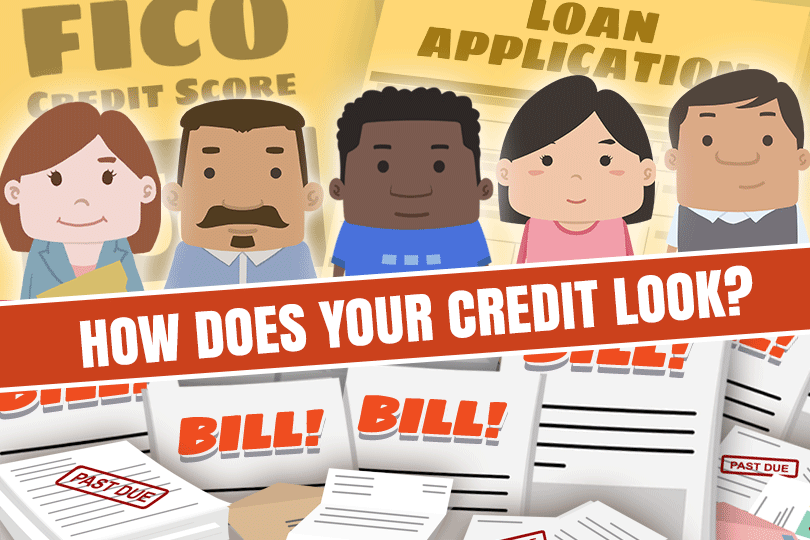Credit Tips for First-Time House Hunters

New borrowers face some challenges on the road to homeownership. We examine some key issues when planning your FHA purchase or refinance loan.
Don’t Neglect Your Credit Report
As mentioned above, FHA lenders rely heavily on the credit reports from the three major reporting agencies to determine your creditworthiness.
New house hunters sometimes forget (at first) the need to pay regular attention to credit scores and credit report data. Errors, inaccuracies, or signs of identity theft can diminish your credit score and jeopardize FHA home loan approval.
To begin your credit monitoring process, you can first request free copies of your reports through the official website, AnnualCreditReport.com.
Avoid Racking Up More Debt
Adding debt after you have applied for an FHA loan or applying to be pre-approved for an FHA mortgage can hurt your debt-to-income ratio (DTI), which lenders scrutinize when evaluating your loan application.
Your DTI is calculated by comparing your monthly debt to your gross monthly income. A high DTI warns the lender a large portion of your income is eaten up by debt, leaving less room for mortgage payments.
On paper, lenders may view a DTI of 43% or lower as favorable, though some may accommodate higher ratios depending on circumstances.
Reduce your existing debts, such as credit cards, student loans, and auto loans, before applying for a mortgage. Doing so can improve your DTI over time.
Avoid Applying for New Credit
When you apply for a credit card or auto loan, there is a hard inquiry on your credit report. This can lead to a temporary reduction of the applicant’s FICO scores.
And multiple hard inquiries for such credit in a short amount of time can hurt your FICO scores even more. Avoid applying for new credit cards, loans, or other forms of financing once you have committed to buying a home.
Do not Close Old Credit Accounts
Closing old credit accounts can actually hurt your credit score. The duration of your credit history plays a big part in determining your creditworthiness. It is better to pay off the accounts and keep them open.
Avoid Co-signing for Other Loans
Whenever you are personally liable for a debt, even as a co-signer and not as the primary borrower, it can count against you at FHA loan application time if you have too many other debts. Co-signing should be avoided if you are serious about buying a house.
------------------------------
RELATED VIDEOS:
Learn How to Meet FHA Requirements
Understanding APR
Your Proof of Ownership Is the Property Title

Do you know what's on your credit report?
Learn what your score means.







